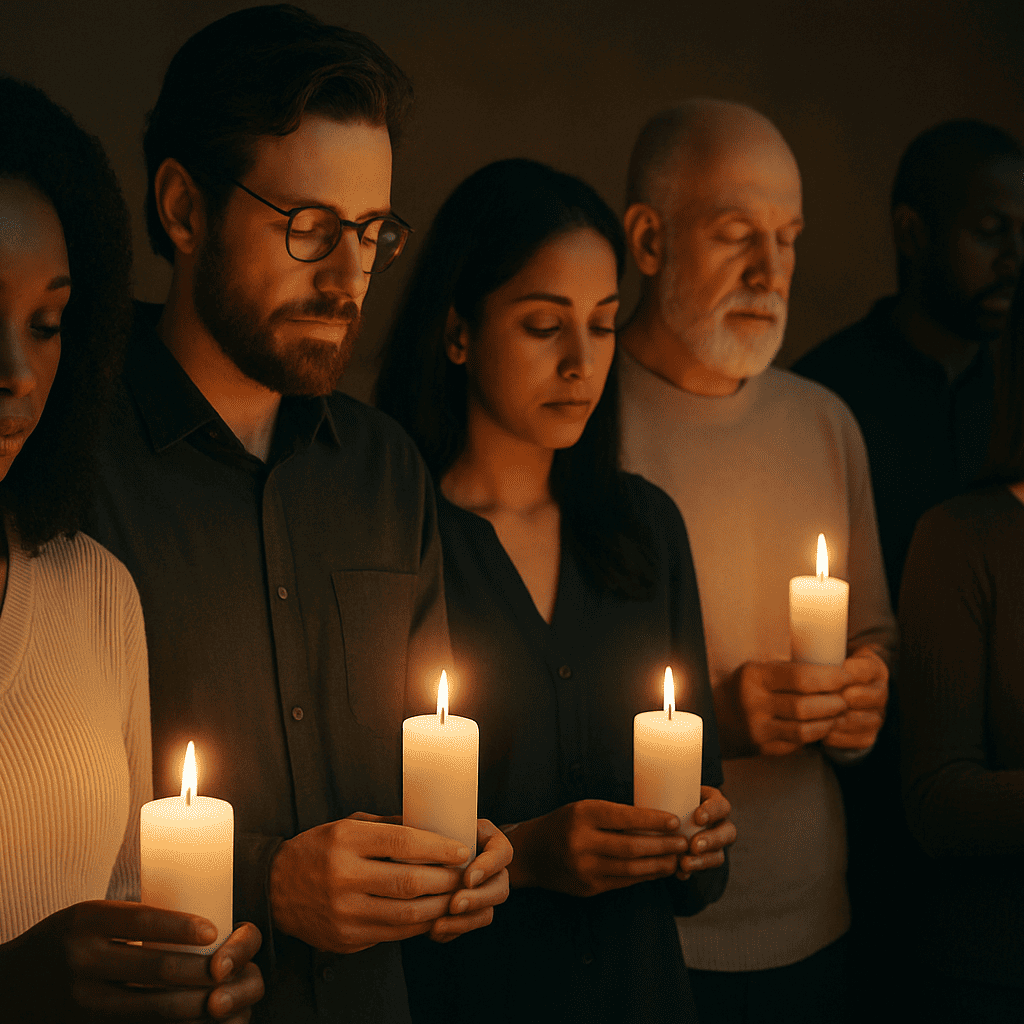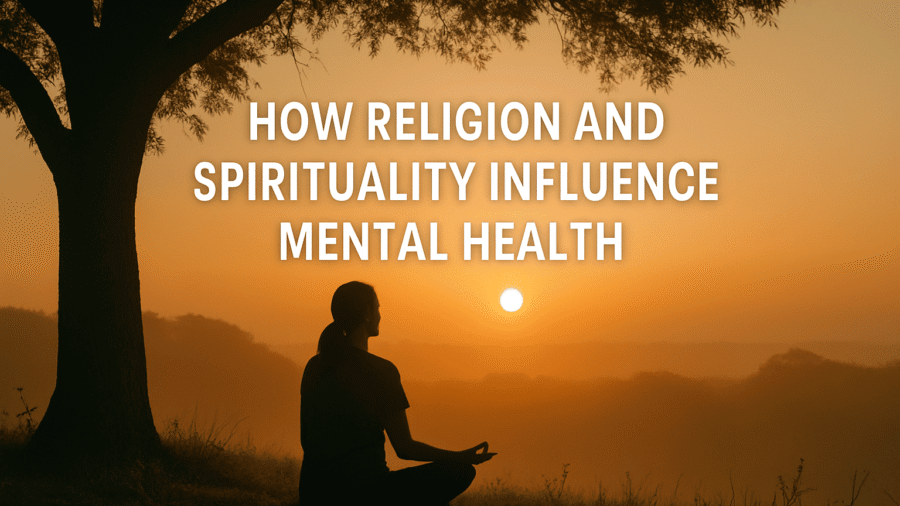There are moments in life when words fail, logic does not make sense and all we are left with is the quiet ache inside. The need for meaning, hope or something deeper than despair.
In those moments, most of us turn not to textbooks or therapists first, but to prayer, meditation or the embrace of a spiritual belief.
Religion and spirituality have for centuries offered sanctuary in the storms of human life. But in modern psychology, the question remains: Does faith truly heal the mind? Or does it simply console the soul?
Let us take a look at how spiritual connection can shape emotional resilience, nurture mental clarity and become a bridge between the seen and unseen dimensions of healing.
The Role of Faith in Emotional Resilience
For many, religion and spirituality is something beyond rituals or doctrines. They are emotional lifelines, a framework through which suffering is made bearable and hope is kept alive.
According to research by Abrams (2023) from the American Psychological Association, religious activities like prayer, reading the bible or going to church helps to improve coping mechanisms, reduce anxiety and offer a sense of peace in the midst of chaos. These practices are not magical. Rather, they serve as containers for meaning, stillness and perspective.
Faith, in this sense, becomes a soft place to land.
Spirituality as a Path to Mental Clarity
While religion often involves communal rituals and prescribed beliefs, spirituality is more individual and personal. That is a personal relationship between an individual and the sacred. This distinction matters. Spirituality allows for flexibility and exploration, especially for those who have drifted from formal religion but still seek inner alignment.
A scoping review by Pinto et al., (2024) found that higher spiritual intelligence (SI) is positively linked to lower stress, anxiety, depression and burnout. It also correlates with better emotional regulation, which is crucial for those navigating mental health conditions.

Faith Communities as Support Networks
Beyond beliefs, religion provides its followers with something therapy sometimes cannot offer: a community of belonging. Churches, mosques, temples and spiritual communities offer social support, accountability and compassionate witnessing.
According to a 2024 survey by the American Psychiatric Association, over 60% of people of faith indicate that they would seek help for emotional distress if they were advised to do so by their religious leader. This suggests that spiritual leaders play a crucial role in reducing stigma and opening doors to professional care.
When spiritual communities affirm emotional struggles instead of suppressing them, healing unfolds more safely and deeply.

When Faith Feels Fragile: Navigating Doubt and Inner Conflict
Not all spiritual experiences feel uplifting. For some, religious trauma, guilt or spiritual disillusionment can contribute to emotional suffering.
That is why therapists and counsellors are being encouraged to include spiritual assessment in mental health care. As a 2023 publication by Vieten et al., (2023) in BMC Psychology emphasises that many clients want their faith or spiritual belief to be acknowledged in therapy. When professionals validate spiritual distress as part of the healing process, clients are more likely to find integration between their inner life and outer healing.
For readers currently navigating spiritual doubt or distance, you may find hope in the PsycheShare post: When Faith Feels Fragile: Navigating Spiritual Doubt and Emotional Strain. This post explores how to gently reconnect with the sacred, even when belief feels broken.
Spiritual Practices That Support Mental Wellness
You do not need to be extremely religious to engage in practices that restore the mind. Spiritually oriented practices create emotional equilibrium, mindfulness and meaning construction. Some of them include:
- Gratitude journaling with a spiritual lens (e.g., seeing divine grace in daily events)
- Silent prayer or contemplative meditation
- Spiritual readings or affirmations from scriptures or wisdom traditions
- Acts of service, which increases meaning and self-worth
- Mindful breathwork connected to spiritual reflection
For readers seeking practical tools, PsycheShare’s post Top 5 Meditation Apps for Beginners in 2025 offers guidance on how to begin meditation and breath-focused spiritual practices even without prior experience.
The Role of Religion in Recovery from Mental Disorders
Recovery from severe mental illness is as much clinical as it is existential. People often ask, Why me? What now? How do I live beyond this?
A recent systematic review by Sawab, et al., (2024) indicates that spirituality enhances hope, self‑efficacy, strength and quality of life among individuals recovering from conditions like schizophrenia, bipolar disorder and PTSD. For others, spiritual beliefs allow them to reinterpret suffering as part of a larger journey, which gives them the courage to keep going.
When Belief Becomes a Burden: The Darker Side of Faith
Whereas spirituality can give strength, it can also deepen emotional wounds when applied improperly or misinterpreted. For some, religion has not been a sanctuary but a source of shame, guilt, fear, or exclusion.
Religious trauma can stem from:
- Strict doctrines that demonise mental illness
- Religious communities that stigmatise therapy or medication
- Messages that frame suffering as punishment or lack of faith
- Spiritual leaders who discourage emotional expression or medical treatment
For young people who come from authoritarian or rigid religious communities, these messages may internalise shame and self-blame which can delay getting help for mental illness, or even cause more anxiety, depression and suicidal ideation.
As noted by Vieten et al., (2023), the psychological impact of spirituality depends on belief and on context, interpretation and community culture. When belief invalidates your pain, it does not heal, it harms.
This is why compassionate, spiritually integrated therapy matters: it can hold space for faith and pain to coexist.
If you are facing religious doubt, shame or hurt, the PsycheShare post When Faith Feels Fragile: Navigating Spiritual Doubt and Emotional Strain will offer gentle support and tools for healing spiritual wounds without abandoning your inner truth.
When the soul whispers, the mind listens.

True mental health is both about fixing symptoms and becoming whole.
Religion and spirituality, when held with compassion and not coercion, offer depth, direction and dignity to the healing process. They help us remember that we are not merely brains in distress but souls in search of light.
For those yearning to integrate faith and mental health, you are not alone. The path is not perfect, but it is sacred.
REFERENCES
Abrams, Z. (2023, November 1). Can religion and spirituality have a place in therapy? Experts say yes. Monitor on Psychology, 54(8). https://www.apa.org/monitor/2023/11/incorporating-religion-spirituality-therapy
American Psychiatric Association Foundation. (2024, September 16). New polling data shows most people of faith would seek mental health care if recommended by their faith leader. https://www.apaf.org/media-events/news/polling-data-shows-most-people-of-faith-would-seek-mental-health-care-if-recommended-by-their-faith/
Bedjabeng, C. A. (2025, August 8). When faith feels fragile: Navigating spiritual doubt and emotional strain. PsycheShare. https://psycheshare.com/when-faith-feels-fragile-navigating-spiritual-doubt-and-emotional-strain/
Bedjabeng, C. A. (2025, August 8). When faith feels fragile: Navigating spiritual doubt and emotional strain. PsycheShare. https://psycheshare.com/when-faith-feels-fragile-navigating-spiritual-doubt-and-emotional-strain/
Pinto, C. T., Guedes, L., Pinto, S., & Nunes, R. (2024). Spiritual intelligence: a scoping review on the gateway to mental health. Global health action, 17(1), 2362310.
PsycheShare. (2025, May 23). Top 5 meditation apps for beginners in 2025. PsycheShare. https://psycheshare.com/top-5-meditation-apps-for-beginners-in-2025/
Sawab, S., Yusuf, A., Fitryasari, R., & Arifin, H. (2024). Spirituality and Recovery From Severe Mental Disorders: A Systematic Review. Journal of Psychosocial Nursing and Mental Health Services, 62(8), 11-17.
Vieten, C., Oxhandler, H. K., Pearce, M., Fry, N., Tanega, C., & Pargament, K. (2023). Mental health professionals’ perspectives on the relevance of religion and spirituality to mental health care. BMC psychology, 11(1), 439.



[…] processing. It can also become a spiritual practice of reflection, gratitude, and deeper meaning. How Religion and Spirituality Influence Mental Health, examines in more detail the relationship between everyday spiritual practices and emotional […]